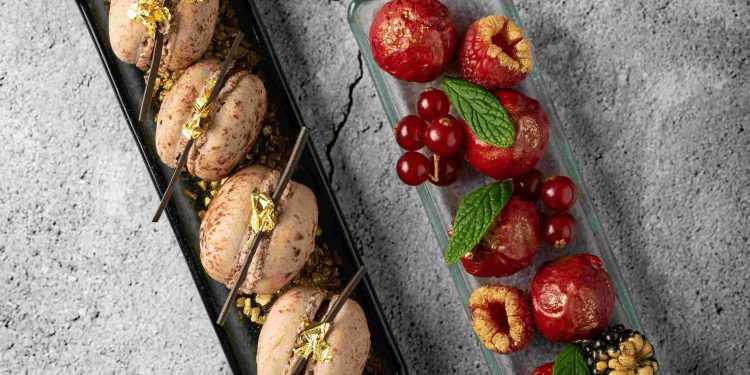Quick and Healthy Dinner Recipes for Weight Loss
Why settle for bland when transformation begins with flavor?
The misconception that weight loss meals are dull and uninspiring is an outdated relic. Imagine this: a dinner bursting with colors, textures, and aromas that not only nourishes your body but ignites motivation toward a healthier lifestyle. It’s time to challenge what we’ve been taught about eating for weight management, leveraging the wealth of insights from psychology, nutrition, and even technology to craft an upgraded approach to food preparation.
Breaking Free from Conventional Wisdom
Traditional wisdom often revolves around calorie counting and portion control, but what if the secret to successful weight loss lies elsewhere? Renowned psychologist Dr. Carol Dweck’s research on growth mindset suggests that how we approach challenges – including diet – can transform outcomes. Instead of seeing meals as sacrifices, they can be opportunities. By combining high-protein ingredients with fiber-rich vegetables and healthy fats, you can feel fuller for longer and ditch the idea of deprivation altogether.
The Psychology of Meal Design
Why does the lure of unhealthy fast food appeal even when we desperately want to stick to our health goals? Behavioral science offers a clue: convenience and instant gratification are powerful motivators. By designing quick recipes that are no less convenient than a drive-thru meal, we tap into these psychological tendencies while supporting long-term goals. For example, a 15-minute quinoa stir-fry with lean chicken and fresh herbs satisfies cravings far more sustainably than greasy alternatives. Think beyond macros – tap into how people truly “feel” about food.

Challenging Traditional Diet Paradigms
For centuries, society has perpetuated the idea that eating less is synonymous with losing weight. However, recent advances in nutritional science reveal the flaws in this thinking. The focus must shift toward nutrient density over calorie reduction. Imagine a bowl of vibrant vegetable curry, simmered with anti-inflammatory spices like turmeric and ginger, accompanied by brown rice. This isn’t just food—it’s fuel crafted to optimize performance and recovery. The underlying beauty of such meals is their ability to satisfy while working synergistically with the body.
Incorporating Technology and Interdisciplinary Insights
Today, meal planning and nutrition are no longer stuck in analog. Wearable tech and apps like MyFitnessPal or Cronometer provide personalized data, enabling smart adjustments to your daily intake. Technology can also act as a “meal coach,” recommending recipes tailored to individual goals. Using data-driven insights from fields like bioinformatics and AI opens doors toward truly personalized nutrition strategies. Combine this with broader societal shifts – such as the growing appreciation for plant-based eating – and the future of healthy eating looks excitingly dynamic.
Predicting Food Trends for Weight Loss
As sustainability grows in importance, food trends are shifting towards plant-forward diets and locally sourced ingredients. By embracing whole foods and limiting reliance on ultra-processed products, people are returning to the roots of health-conscious eating. Imagine the rise of molecular gastronomy applied to weight loss meals – utilizing science to focus on extracting maximum flavor and nutrition with minimal ingredients. The future of weight-loss dining is poised to become an innovative blend of nutrition and culinary artistry.
Practical Steps for Action
-
Explore nutrient-dense recipes:
Swap high-calorie staples with lower-calorie alternatives, such as zucchini noodles instead of pasta. -
Adopt batch cooking:
Prepare multiple portions of healthy dinners in advance to minimize daily decision fatigue. -
Leverage flavor enhancers:
Create satisfying meals with herbs, spices, and citrus instead of calorie-heavy sauces. -
Engage with your community:
Share recipes and ideas in online forums to keep momentum alive and discover fresh perspectives.
These steps aren’t just ideas—they’re an invitation to reclaim enjoyment from dinner without compromising vitality or goals.
Using Metaphors to Reframe Meal Time
Think of your plate as a palette, each ingredient another stroke by which you compose a masterpiece. Just as an artist considers color, depth, and movement, you should build plates with balance, vibrancy, and functionality. Food isn’t just sustenance—it’s an expression of care both for yourself and the planet. A thoughtfully prepared dinner can be as rewarding as completing a work of art or solving a complex problem at work.
A Lifelong Commitment to Education
Ultimately, the path to consistent, satisfying weight loss goes beyond food. It’s about cultivating curiosity regarding nutrition, refining your knowledge base, and being willing to adapt based on new discoveries. As author James Clear asserts in
Atomic Habits
, “Every action you take is a vote for the kind of person you wish to become.” In the context of dinner, every choice predicts who you are becoming—the person committed to health, self-awareness, and growth.
Use this approach not just tonight, but make it a lens through which you view every opportunity to nourish your body. With the right tools, mindset, and willpower, dinner becomes more than a meal; it becomes a powerful catalyst for achieving your personal best.














Discussion about this post